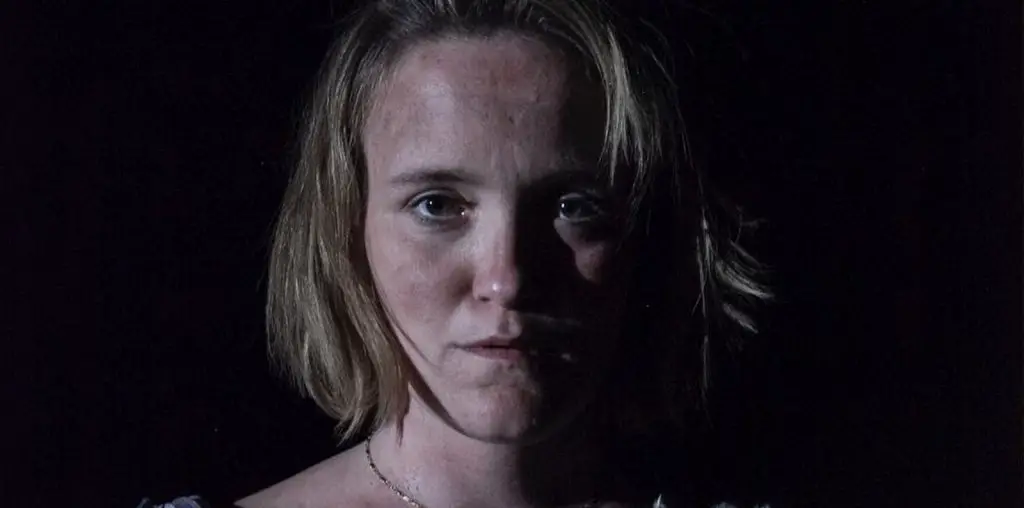
“Everybody gotta have a dream.” That such a banal statement at face value can come to mean something far more profound and inspiring is reflective of the feat writer-director Craig Brewer achieves with “Hustle & Flow.” In fact, the title pretty well sums up the contradictions that he somehow makes fully functional in his Sundance sensation: taking ideas and material that seem rather forced and contrived on paper and make them flow into a naturally cohesive, rousing, and surprisingly moving whole.
The premise sounds easily dismissible, almost like knowingly preposterous groundwork for parody. A Memphis pimp named DJay (Terrence Howard) in a midlife crisis decides to take up rapping when he happens into the possession of an old Casio keyboard. The plot machinations of the early going do feel like just that as so many things seem to magically fall into place for DJay’s transformation–the keyboard; a spontaneous run-in with Key (Anthony Anderson), an old acquaintance and sound engineer who then takes him to a soul-stirring church choir performance–in an almost implausibly pat manner. But from the outset, Brewer holds the trump card–namely, Howard, who lends legitimacy to the character and story from frame one. This marks reliable veteran Howard’s first big-league lead, but he wholly disappears into the role of DJay with the chameleonic immersion of a character actor; if the plot circumstances surrounding him initially come off as a bit much, Howard’s DJay never comes off as any less than real: his frustration, his desperation, his stalwart ambition.
And that’s what ultimately drives “Hustle & Flow”–those genuine, universal vulnerabilities and yearnings for something bigger and better than the hand one is dealt. If the circumstances setting DJay off on his journey do feel a bit rushed, it pays off in that Brewer is then quickly liberated for the rest of the run time to flesh out not only DJay’s pursuit of his goal but also the dreams of those around him. Everybody gotta have a dream, and as it comes clear, everyone in DJay’s world has one, spoken or unspoken, earth-shattering or modest. Key has designs on being a big-time producer; DJay’s main moneymaker Nola’s (Taryn Manning) wants to make things happen for herself for once. While those read as typical movie goals–though in execution they certainly do not–Brewer goes the extra mile in painting the whole spectrum of dreams; resonating particularly poignantly is DJay’s pregnant girl Shug (an astonishingly unrecognizable Taraji P. Henson in a revelatory performance), for whom singing the hook on a demo track is far more than anything she could have ever thought to achieve in her downtrodden world.
Such authentic grit and grime also lends “Hustle & Flow”‘s tale of improbable dreamers dreaming impossible dreams extra weight. Never once to we get the sense that DJay’s world is a glossed-over movie version of the grimy Memphis underbelly. Brewer, operating from the old school, down-and-dirty mind of ’70s cinema, admirably doesn’t pretty anything up, from the sweaty humidity and the lived-in homes, and the scene is made all the more unforgiving by the grainy 16mm photography by Amy Vincent. Above all, though, is the acute awareness of the surroundings given off by the characters; whether blatantly through dialogue (as in the case of Nola’s character in one pivotal scene) or simply the weary looks in their eyes.
Thus when DJay and his crew lay down their demo tracks in his makeshift recording studio, the sense of hope that comes over them is all the more startling and piercing. Not only is DJay’s music genuinely catchy, they convincingly emerge from his life and experiences, and that added cathartic weight justifies DJay’s life-or-death drive to get a demo to big-time rapper Skinny Black (Ludacris)–not to mention makes his palpable joy when making music all the more infectious. In a world where dreams appear synonymous with futility, one can strongly feel the weight of many hopes and dreams behind each note, each beat. Young or old, hip-hop fan or not, DJay’s raps become the voice of anyone who’s ever dared to think larger than who they are.
So goes Craig Brewer’s hustle and flow in “Hustle & Flow”–while never sacrificing any of the hard-knock authenticity and specificity of his characters and their milieu, he has crafted a deeply felt film that can speak to and empower just about any audience. Everybody indeed gotta have a dream, and ultimately the dream is the same for everyone, whether a pimp in Memphis or a moviegoer in a multiplex: we’re all waiting for our own Casio keyboard to fall into our lap and set us on our path.
